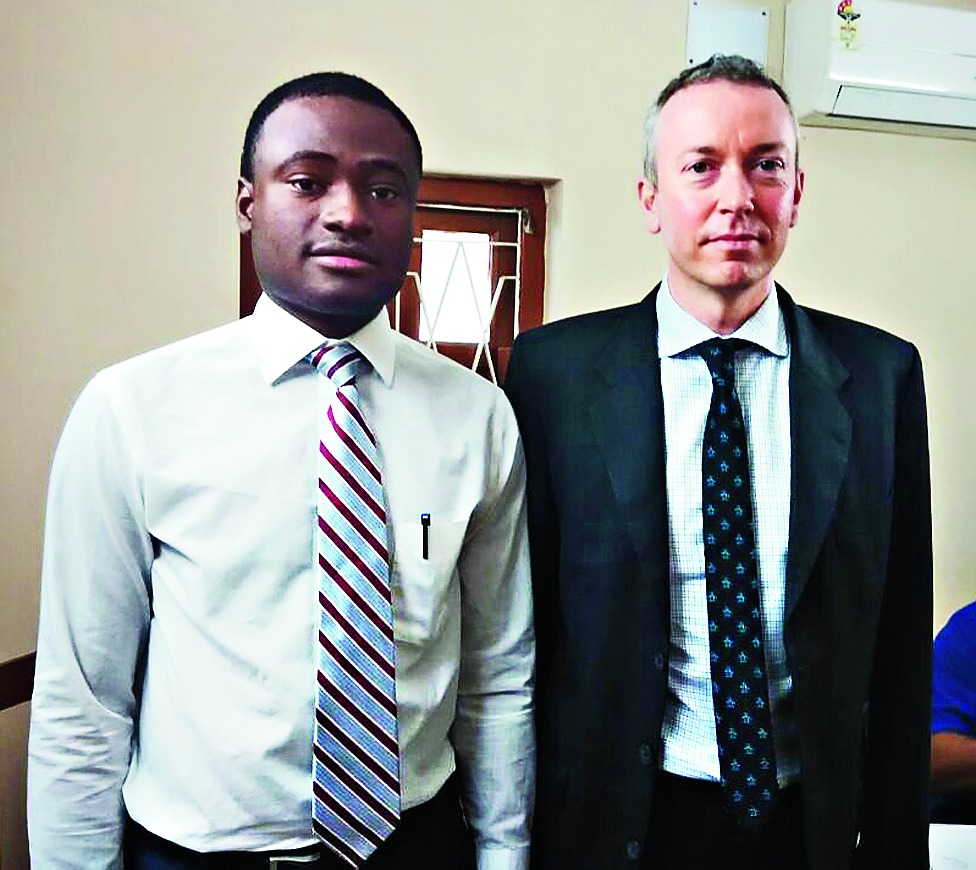
March 27: Two officials of a US think tank that advises the Donald Trump government on policy matters were in Bengal over the weekend to study a programme to train quacks and they liked what they saw.
Richard Downie, deputy director in the Centre for Strategic and International Studies, and Deen L. Garba, a research associate at the organisation, visited villages near Birbhum's Suri to interact with trained quacks and their patients.
The NGO Liver Foundation had in 2007 started the programme to get quacks trained by doctors with funds from the state government. Around 3,500 quacks have completed the course, which used to be of nine months before its duration was cut short by three months.
"We found that the trained informal caregivers acted well within their limitations. Our interactions with them and other villagers revealed that after the training they tend to treat ailments more successfully. They also refer more patients whose conditions they can't manage to doctors rather than holding on to them," said Downie.
He called the programme an "appropriate intervention in resource constrained settings" because quacks continue to be the first point of contact for patients in remote areas.
According to Bengal government estimates, there are 1,07,000 quacks across the state.
Abhijit Chowdhury, hepatologist and the head of the School of Liver Diseases at SSKM Hospital, who has been involved with the project since inception said the government was about to launch a scheme to train all quacks in all blocks in phases.
"We have completed the training of 96 nurses in government hospitals who will conduct classes for quacks in various blocks," said Chowdhury, who was among those who trained the nurses.
As part of the training, quacks are being taught about the functions of various organs and side effects of medicines, and when to refer a patient to hospital or a doctor. "An informal caregiver can prescribe medicines to a patient suffering from fever, cough and cold. But if the fever is accompanied by severe headache, the patient should be referred to a doctor. Trained quacks can tell whether an abdominal pain is caused by appendicitis, in which case the patient has to be referred to a doctor," Chowdhury said.
Subhashis Chattoraj, from Kamdighi village in Birbhum, who worked as a quack for five years before being trained by Liver Foundation in 2011 said he was much more confident now.
Downie, whose organisation conducts policy studies and strategic analyses of political, economic, security and health issues, said he had spent time in the "chambers" of trained quacks in four villages and found they knew their limitations and stuck to them.
Downie and Garba met health secretary R.S. Shukla at Swasthya Bhavan today and told him the training programme could be replicated in Nigeria, Ethiopia and South Africa, where there are a number of untrained medical practitioners. "We will file a report to this effect on return to Washington," Downie told Metro.










